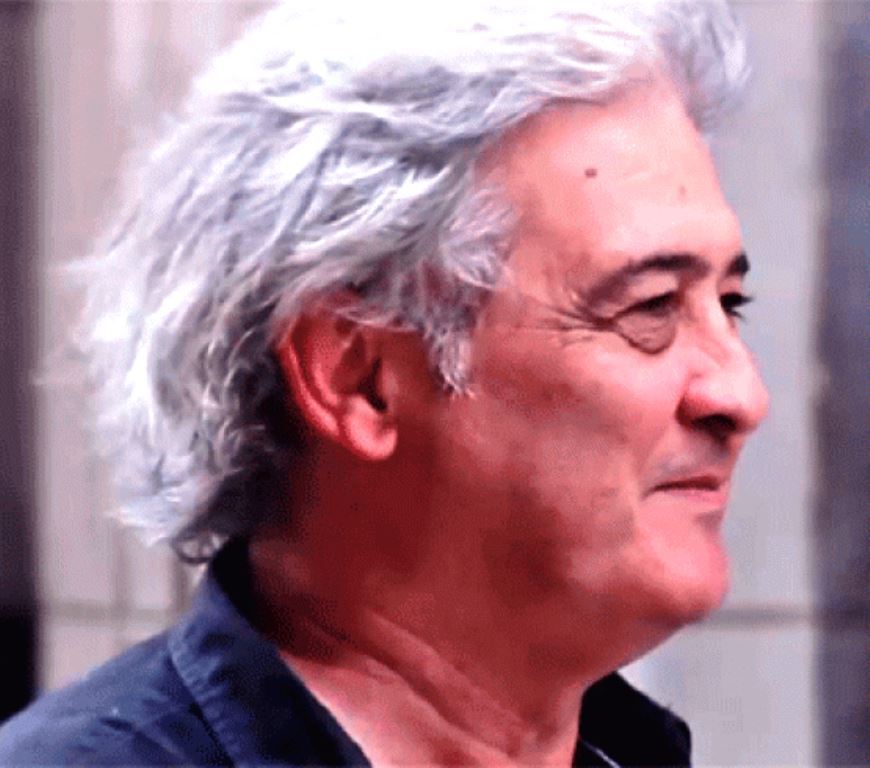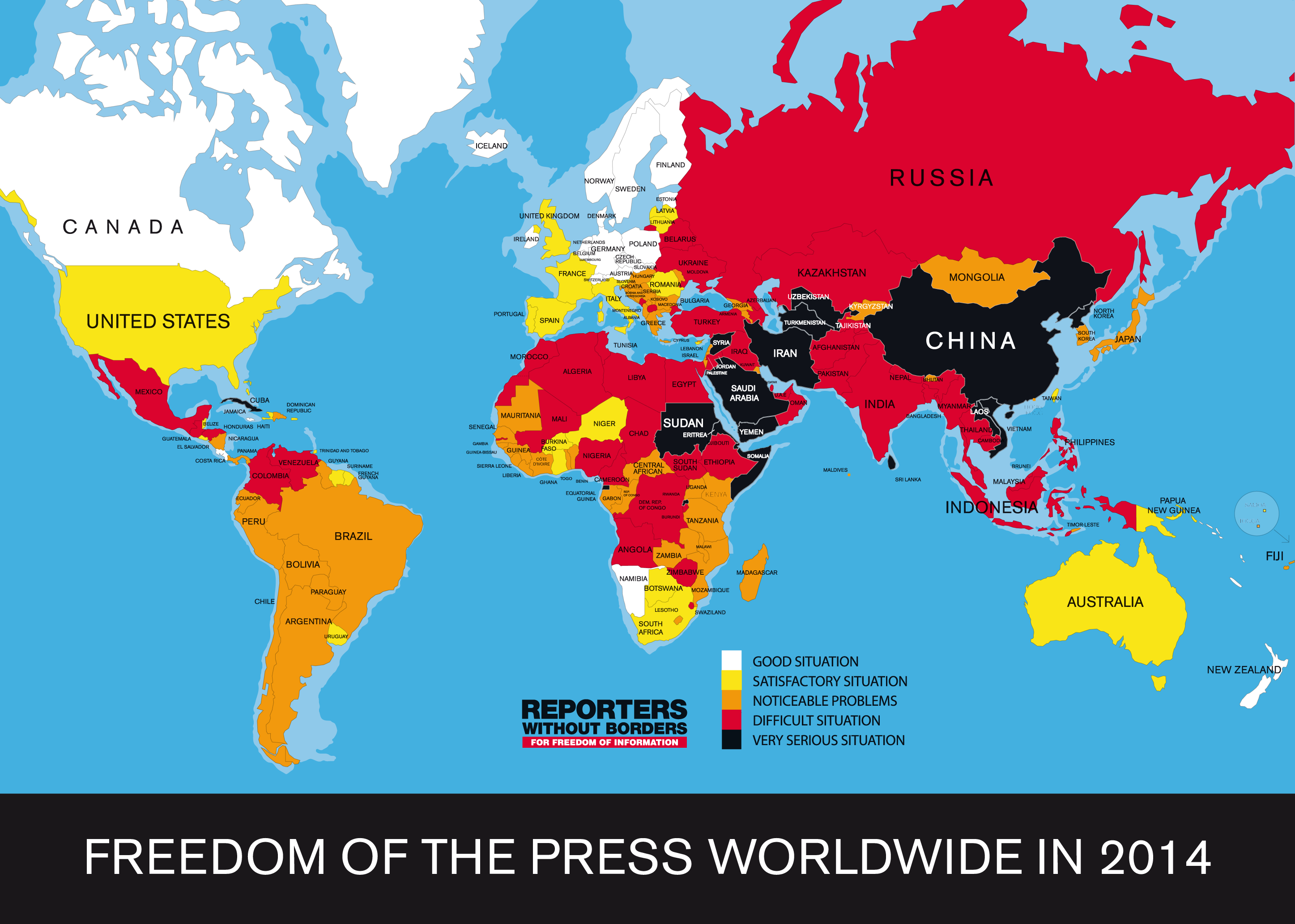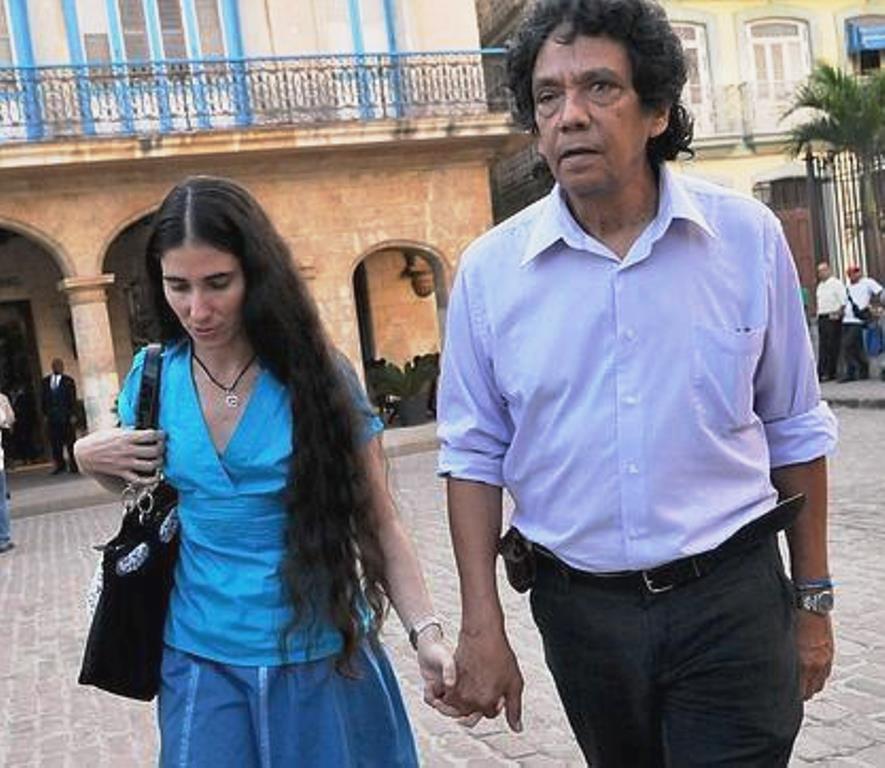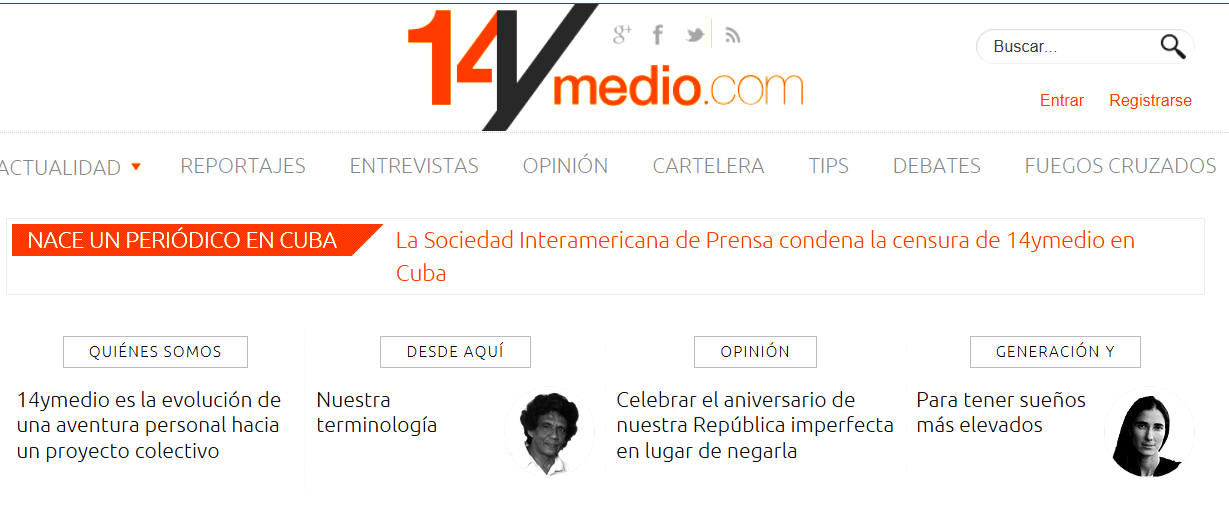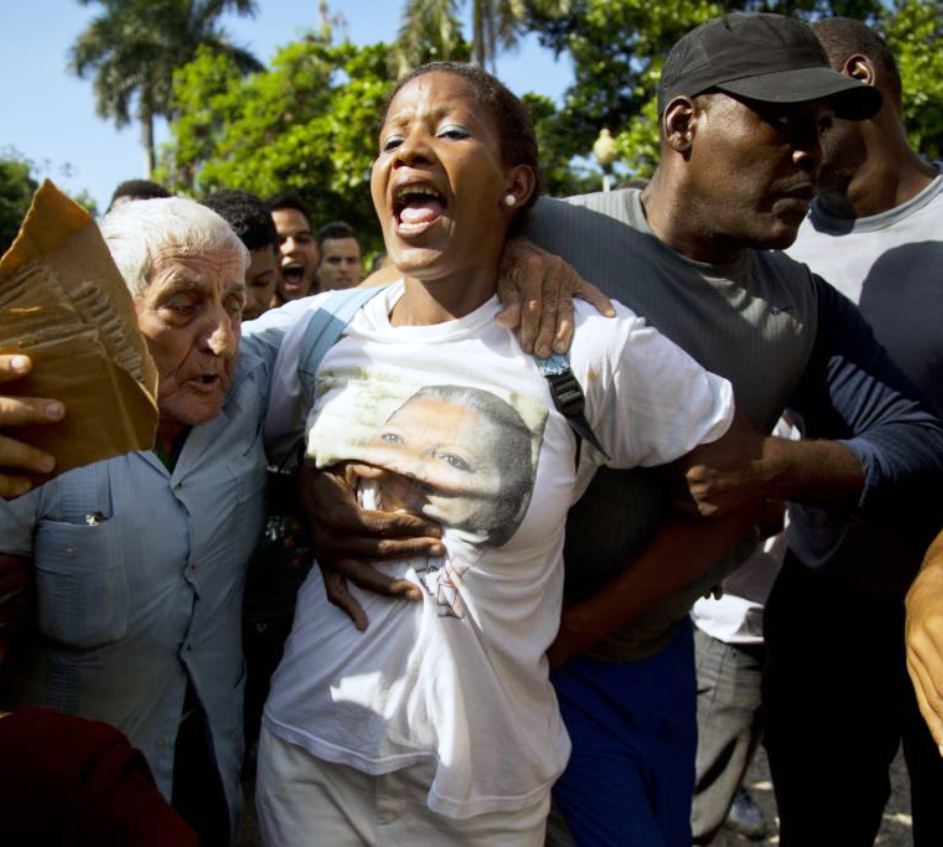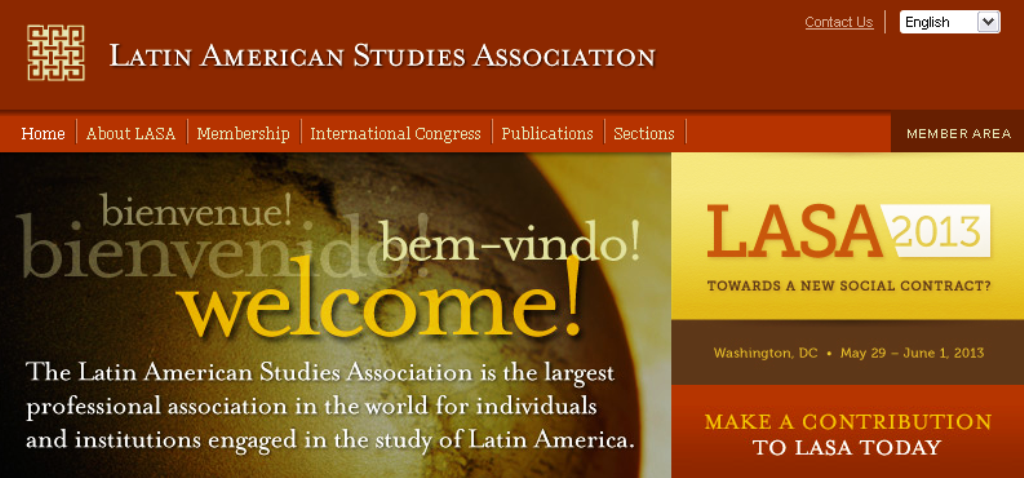
In 2010 and 2011, Cuba’s government released dozens of political prisoners on condition they accept exile in exchange for freedom. Since then, it has relied less on long-term prison sentences to punish dissent and has relaxed draconian travel restrictions that divided families and prevented its critics from leaving and returning to the island.
Nevertheless, the Cuban government continues to repress individuals and groups who criticize the government or call for basic human rights. Officials employ a range of tactics to punish dissent and instill fear in the public, including beatings, public acts of shaming, termination of employment, and threats of long-term imprisonment. Short-term arbitrary arrests have increased dramatically in recent years and routinely prevent human rights defenders, independent journalists, and others from gathering or moving about freely.
Arbitrary Detentions and Short-Term Imprisonment
The government continues to rely on arbitrary detention to harass and intimidate individuals who exercise their fundamental rights. The Cuban Commission for Human Rights and National Reconciliation—an independent human rights group the government views as illegal—received over 3,600 reports of arbitrary detentions from January through September 2013, compared to approximately 2,100 in 2010.
The detentions are often used preemptively to prevent individuals from participating in events viewed as critical of the government, such as peaceful marches or meetings to discuss politics. Many dissidents are beaten and threatened when detained, even if they do not try to resist.
Security officers virtually never present arrest orders to justify detentions and threaten detainees with criminal sentences if they continue to participate in “counterrevolutionary” activities. In some cases, detainees receive official warnings, which prosecutors may later use in criminal trials to show a pattern of delinquent behavior. Dissidents said these warnings aim to discourage them from participating in activities seen as critical of the government.
Victims of such arrests may be held incommunicado for several hours to several days. Some are held at police stations, while others are driven to remote areas far from their homes where they are interrogated, threatened, and abandoned.
On August 25, 2013, more than 30 women from the Damas de Blanco (Ladies in White)—a group founded by the wives, mothers, and daughters of political prisoners and which the government considers illegal—were detained after attending Sunday mass at a church in Santiago, beaten, forced onto a bus, and left at various isolated locations on the city’s outskirts. The same day, eight members of the group in Havana and seven more in Holguín were arbitrarily detained as they marched peacefully to attend mass.
Political Prisoners
Cubans who criticize the government may face criminal prosecution. They do not benefit from due process guarantees, such as the right to fair and public hearings by a competent and impartial tribunal. In practice, courts are “subordinated” to the executive and legislative branches, denying meaningful judicial independence. Political prisoners are routinely denied parole after completing the minimum required sentence as punishment for refusing to participate in ideological activities, such as “reeducation” classes.
The death of political prisoner Orlando Zapata Tamayo in 2010 after his 85-day hunger strike and the subsequent hunger strike by dissident Guillermo Fariñas pressured the government to release the remaining political prisoners from the “group of 75” (75 dissidents sentenced to long prison terms in a 2003 crackdown). Yet most were forced to choose between ongoing prison sentences and forced exile. The overwhelming majority accepted relocation to Spain in exchange for their freedom.
Dozens of political prisoners remain in Cuban prisons according to local human rights groups, which estimate that there are more political prisoners whose cases they cannot document because the government prevents independent national or international human rights groups from accessing its prisons.
Luis Enrique Labrador Diaz was one of four people detained in January 2011 for distributing leaflets in Havana with slogans such as “Down with the Castros” and was subsequently convicted in May 2011 for contempt and public disorder in a closed, summary trial. He was still in prison at time of writing.
Freedom of Expression
The government controls all media outlets in Cuba and tightly restricts access to outside information, severely limiting the right to freedom of expression. Only a tiny fraction of Cubans are able to read independent websites and blogs because of the high cost of and limited access to the Internet. A May 2013 government decree directed at expanding Internet access stipulates that it cannot be used for activities that undermine “public security, the integrity, the economy, independence, and national security” of Cuba—broad conditions that could be used to impede access to government critics.
A small number of independent journalists and bloggers manage to write articles for websites or blogs, or publish tweets. Yet those who publish information considered critical of the government are sometimes subject to smear campaigns, attacks, and arbitrary arrests, as are artists and academics who demand greater freedoms.
After jazz musician Roberto Carcasses called for direct elections and freedom of information in a nationally televised concert in Havana in September 2013, officials told him that his words benefitted “the enemy” and that he would be barred from performing in state-run venues. The government lifted the ban—widely reported in the international press—a week later. In May, the director of the government-run Casa de las Americas cultural institute, Roberto Zurbano, published an article in the New York Times highlighting persistent inequality and prejudice affecting Afro-Cubans. He was subsequently attacked in the government-controlled press and demoted to a lesser job at the institute.
Human Rights Defenders
The Cuban government refuses to recognize human rights monitoring as a legitimate activity and denies legal status to local human rights groups. Meanwhile, government authorities harass, assault, and imprison human rights defenders who attempt to document abuses.
Travel Restrictions and Family Separation
Reforms to travel regulations that went into effect in January 2013 eliminate the need for an exit visa to leave the island, which had previously been used to deny the right to travel to people critical of the government and their families. Nearly 183,000 people traveled abroad from January to September 2013, according to the government. These included human rights defenders, journalists, and bloggers who previously had been denied permission to leave the island despite repeated requests, such as blogger Yoani Sanchez.
Nonetheless, the reform establishes that the government may restrict the right to travel on the vague grounds of “defense and national security” or “other reasons of public interest,” which could allow the authorities to deny people who express dissent the ability to leave Cuba. The government also continues to arbitrarily deny Cubans living abroad the right to visit the island. In August, the Cuban government denied Blanca Reyes, a Damas de Blanco member living in exile in Spain, permission to travel to Cuba to visit her ailing 93-year-old father, who died in October before she could visit him.
The government restricts the movement of citizens within Cuba through a 1997 law known as Decree 217. Designed to limit migration to Havana, the decree requires that Cubans obtain government permission before moving to the country’s capital. It is often used to prevent dissidents traveling there to attend meetings and to harass dissidents from other parts of Cuba who live in the capital.
Prison Conditions
Prisons are overcrowded, unhygienic, and unhealthy, leading to extensive malnutrition and illness. More than 57,000 Cubans are in prisons or work camps, according to a May 2012 article in an official government newspaper. Prisoners who criticize the government or engage in hunger strikes and other forms of protest are subjected to extended solitary confinement, beatings, restrictions on family visits, and denial of medical care. Prisoners have no effective complaint mechanism to seek redress.
While the government allowed select members of the foreign press to conduct controlled visits to a handful of prisons in April, it continued to deny international human rights groups and independent Cuban organizations access to its prisons.
Key International Actors
The United States’ economic embargo of Cuba, in place for more than half a century, continues to impose indiscriminate hardship on the Cuban people and has done nothing to improve the country’s human rights. At the United Nations General Assembly in October, 188 of the 192 member countries voted for a resolution condemning the US embargo.
In 2009, President Barack Obama enacted reforms to eliminate restrictions on travel and remittances by Cuban Americans to Cuba put in place during the administration of President George W. Bush in 2004. In 2011, Obama used his executive powers to ease “people-to-people” travel restrictions, allowing religious, educational, and cultural groups from the US to travel to Cuba.
The European Union continues to retain its “Common Position” on Cuba, adopted in 1996, which conditions full economic cooperation with Cuba on the country’s transition to a pluralist democracy and respect for human rights.
Former US Agency for International Development contractor Alan Gross remained in prison despite a UN Working Group on Arbitrary Detention report in November 2012 that called for his immediate release. Gross was detained in Cuba in December 2009 and later sentenced to 15 years in prison for distributing telecommunications equipment to religious groups. The working group said Gross’s detention was arbitrary and that Cuba’s government had failed to provide sufficient evidence of the charges against him.
In May, Cuba underwent its second Universal Periodic Review at the UN Human Rights Council. Several countries expressed concern with repression of human rights defenders, increased arbitrary detentions, and lack of freedom of expression. Cuba rejected many of these recommendations on the grounds that they were “politically biased and built on false premises, resulting from efforts to discredit Cuba on the part of those who, with their hegemonic ambitions, refuse to accept the diversity and the right to freedom of determination of the Cuban people.”
In November, Cuba was re-elected to a seat on the UN Human Rights Council, defeating Uruguay for a regional position despite its poor human rights record and consistent efforts to undermine the council’s work to respond to human rights violators.
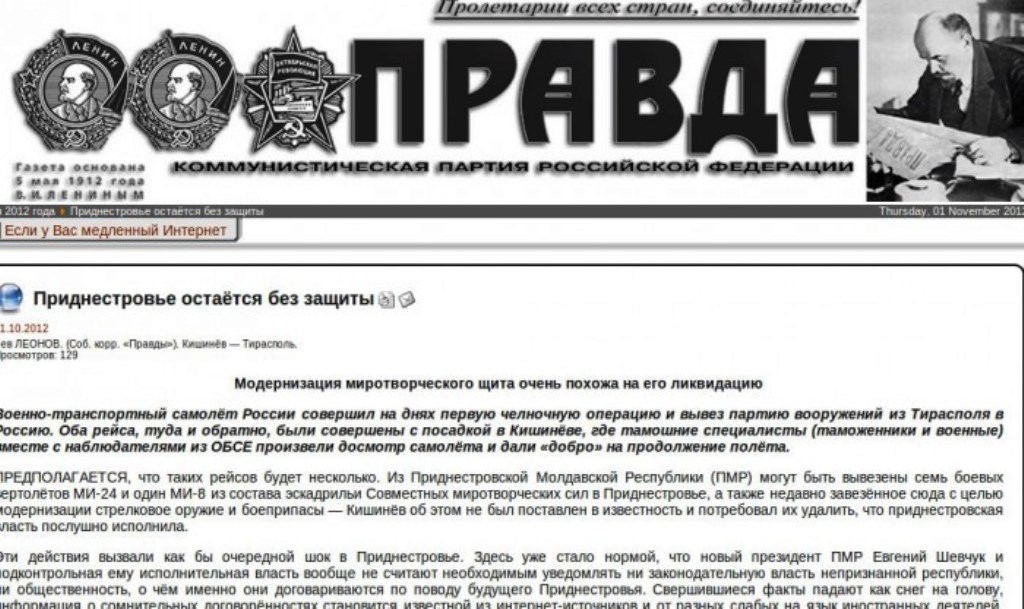 November 13, 2014 – Havana Times –
November 13, 2014 – Havana Times – 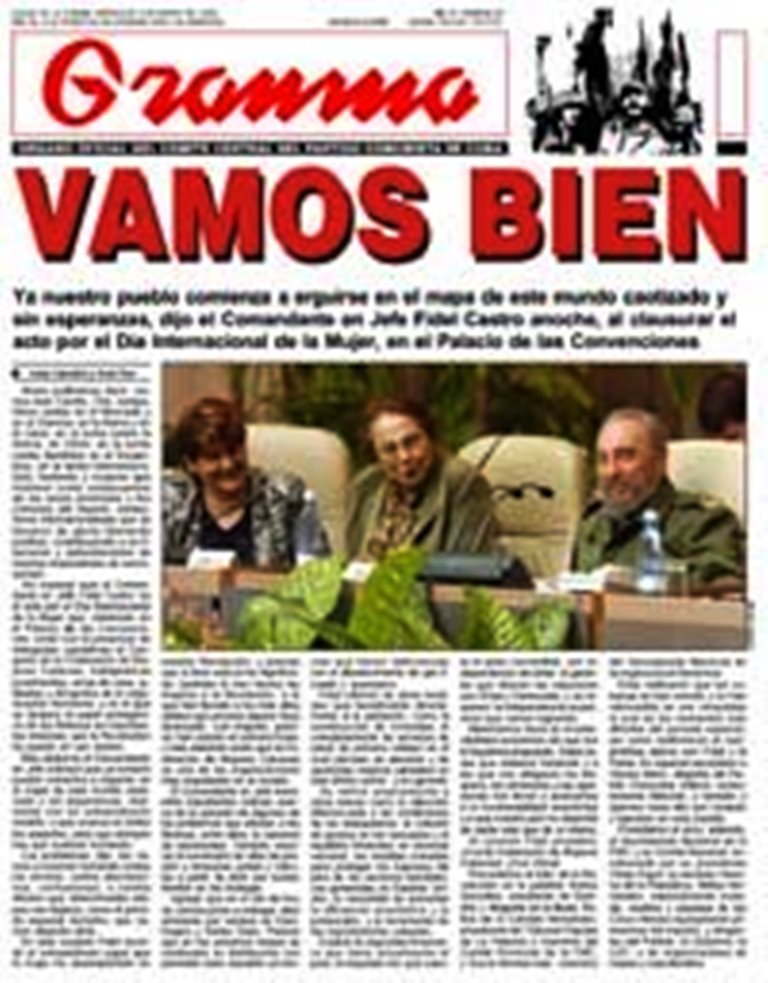 As in the former Soviet Union, all Cuban newspapers, radio stations and TV channels repeat the same news – and they do so with such lack of subtlety that, on occasion, the three major newspapers (Granma, Juventud Rebelde and Trabajadores), have had the exact same front page.
As in the former Soviet Union, all Cuban newspapers, radio stations and TV channels repeat the same news – and they do so with such lack of subtlety that, on occasion, the three major newspapers (Granma, Juventud Rebelde and Trabajadores), have had the exact same front page.
